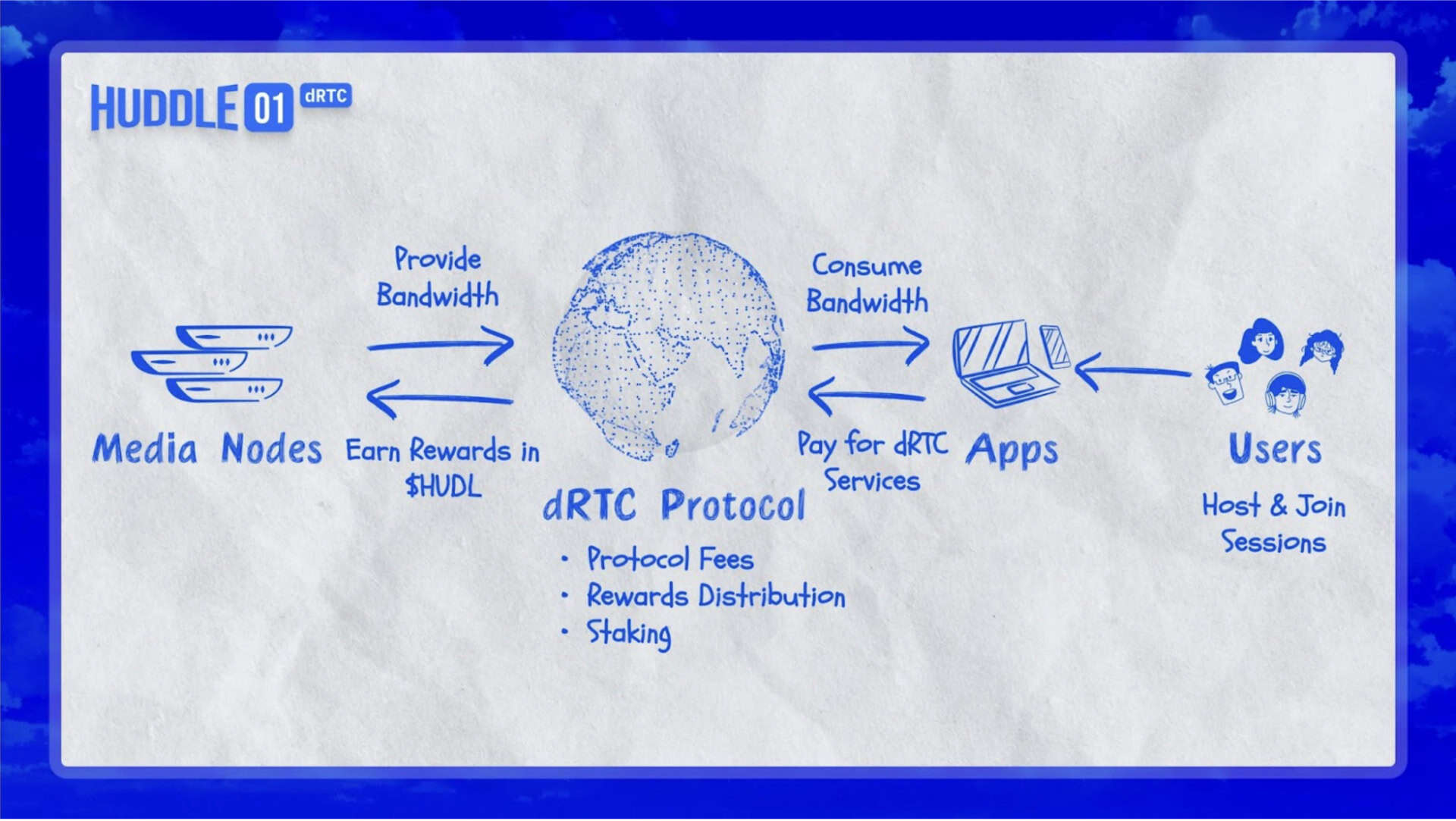Huddle01 Launches Node Sale to Transform Decentralized Communications

Huddle01, a pioneer in decentralized real-time communications (dRTC), has launched a whitelist for its upcoming node sale, aiming to revolutionize audio and video conferencing. This initiative marks the first Decentralized Physical Infrastructure Network (DePIN) specifically designed for real-time communication. By leveraging unused internet bandwidth through node operators, Huddle01 enables seamless communication that can rival established platforms like Zoom and Google Meet. Since its inception, Huddle01 has facilitated over 7 million minutes of meetings across more than 100,000 events, and the addition of new nodes is expected to enhance connectivity in emerging markets while allowing node license holders to earn rewards.
The Huddle01 Media Nodes serve as the backbone of this innovative network, addressing the high operational costs and latency issues associated with centralized RTC networks. By significantly reducing the reliance on traditional data centers, Huddle01 can lower developers’ server costs for audio and video calls by up to 95% compared to conventional services like AWS. CEO Ayush Ranjan emphasizes that the media nodes will improve latency, particularly in regions with a dense cluster of nodes, thus providing a competitive edge over existing web2 solutions. The platform’s native app, Huddle01 Meet, integrates web3 tools, allowing users to connect wallets and utilize NFT avatars, further enhancing the user experience.
The node sale will offer 46,900 Huddle Media Nodes, starting at $320 each, and will occur in two phases. The first phase will see 20,000 nodes available for purchase, with participants receiving an NFT key upon purchase. The sale is structured to reward early participants with higher returns. Additionally, an incentivized testnet will launch shortly after the sale, rewarding active node holders with $HUDL tokens. With a total supply of 200 million $HUDL, the project aims to engage a broad user base and enhance the decentralized communication landscape.
Related News





